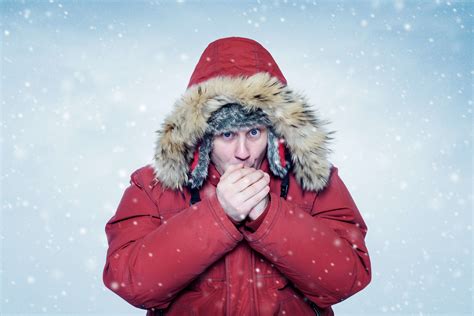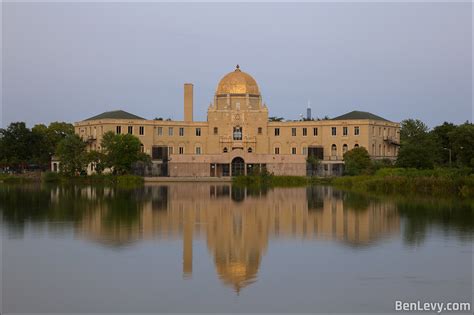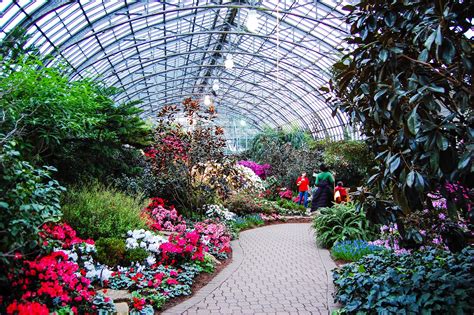Los Angeles is the second-most populous city in the United States and one of the most popular tourist spots in the world. With its Mediterranean-style climate, it is known for its mild weather and lack of extreme temperatures. But does LA ever get cold?
The short answer is yes. Los Angeles does experience colder temperatures. The city’s average low temperature is usually in the mid-50s F (10-15 C), with occasional dips into the 40s F (4-10 C). During the winter months, temperatures can drop even lower, often reaching the 30s F (-1 to 4 C). While it’s not exactly freezing, these temperatures can feel cold for those who are used to the mild climate.
When temperatures do drop, it often coincides with winds from the north and east. As the cold air blows through the city, it usually brings with it clouds and precipitation. Los Angeles receives an average of 14.9 inches (38 cm) of rainfall each year, with the majority of that occurring between November and March.
In addition to rainfall, snow is also possible in Los Angeles. While it is rare, the city does receive occasional snowfall, usually in the form of light dustings or flurries. The last time it snowed in LA was in January 2025, when a rare winter storm brought up to an inch of snow to some parts of the city.
Snow is much more common in the nearby mountains. The San Gabriel Mountains, which are located just northeast of Los Angeles, often receive several feet of snow each winter. Ski resorts like Big Bear Lake and Mountain High are popular destinations for snow lovers.
So while Los Angeles might not be known for its frigid temperatures, there are still cold days during winter. But don’t worry, the city usually warms up quickly. After all, that’s why so many people come to LA in the first place.
Explore LA’s Unusually Cold Winters
Living in Los Angeles, many people often wonder if it ever gets cold here. The answer is, yes, it can get cold in L.A. during the winter months. Although the temperatures are usually mild, there are occasions when the city experiences unusually cold winters. These cold weather events can bring snow, hail and even frost to the area.
Cold weather events happen in Southern California due to temperature inversions. This is when a layer of cold air, from the higher elevations, moves down to the lower elevations, such as the Los Angeles basin. This cold air traps warm air near the ground and creates a temperature inversion. When this happens, temperatures can drop to levels that are much lower than the monthly average.
When a temperature inversion occurs, the cold air can bring snow, hail and even frost to the Los Angeles area. Snow usually falls on the mountains near the city and can sometimes reach as far down as San Fernando Valley. Hail is more common in the Los Angeles area and can occur during colder than average winter days.
Frost is the rarest of the three and usually occurs during very cold winter days. During these events, the temperature is typically below freezing for an extended period of time. This can cause the ground to freeze, leaving a thin layer of frost on the ground.
The cold weather events that happen in Los Angeles can be a great opportunity to explore the city. Take advantage of the cold weather by taking a walk in the park or visiting a museum. You can also take advantage of the cold weather by visiting some of the city’s outdoor ice skating rinks. No matter what you decide to do, make sure to bundle up to stay warm and enjoy the crisp winter air.
Discover the Lowest Recorded Temperatures in Los Angeles
Does Los Angeles ever get cold? Yes, it does! In fact, the lowest recorded temperature in Los Angeles is a chilly 22 degrees F (-5.5 Celsius) on January 7, 1913. But it’s not just the coldest temperature that reveals the weather patterns of the city. Here’s an overview of the lowest temperatures recorded in Los Angeles from the past few decades.
The lowest recorded temperature in Los Angeles between 2000 and 2025 is 25.6 F (-3.6 C) on January 17, 2007. This was the only time during these two decades that the temperature dropped below freezing point in the city.
The lowest recorded temperature in Los Angeles between 1990 and 1999 was 25.9 F (-3.4 C) on January 20, 1998. This was the only time during this decade that the temperature dropped below freezing point in the city.
The lowest recorded temperature in Los Angeles between 1980 and 1989 was 28 F (-2.2 C) on February 7, 1983. This was the only time during this decade that the temperature dropped below freezing point in the city.
The lowest recorded temperature in Los Angeles between 1970 and 1979 was 26 F (-3.3 C) on December 26, 1978. This was the only time during this decade that the temperature dropped below freezing point in the city.
The lowest recorded temperature in Los Angeles between 1960 and 1969 was 24 F (-4.4 C) on January 20, 1962. This was the only time during this decade that the temperature dropped below freezing point in the city.
The lowest recorded temperature in Los Angeles between 1950 and 1959 was 23 F (-5.0 C) on January 4, 1957. This was the only time during this decade that the temperature dropped below freezing point in the city.
| Time Period | Lowest Temperature (F) | Lowest Temperature (C) |
|---|---|---|
| 2000-2025 | 25.6 | -3.6 |
| 1990-1999 | 25.9 | -3.4 |
| 1980-1989 | 28 | -2.2 |
| 1970-1979 | 26 | -3.3 |
| 1960-1969 | 24 | -4.4 |
| 1950-1959 | 23 | -5.0 |
As you can see, the weather patterns in the city of Los Angeles vary from decade to decade, but the lowest recorded temperature in the city remains at 22 degrees F (-5.5 Celsius) for over a century. The city also experiences occasional snowfalls, although they are very rare and occur mainly in the higher elevations of the San Gabriel Mountains.
So, if you were wondering if Los Angeles ever gets cold, the answer is yes, it does! But it’s not as cold as you’d think, and the low temperatures are only experienced on a few occasions every year.
 Road Topic Tourism & Travel
Road Topic Tourism & Travel




